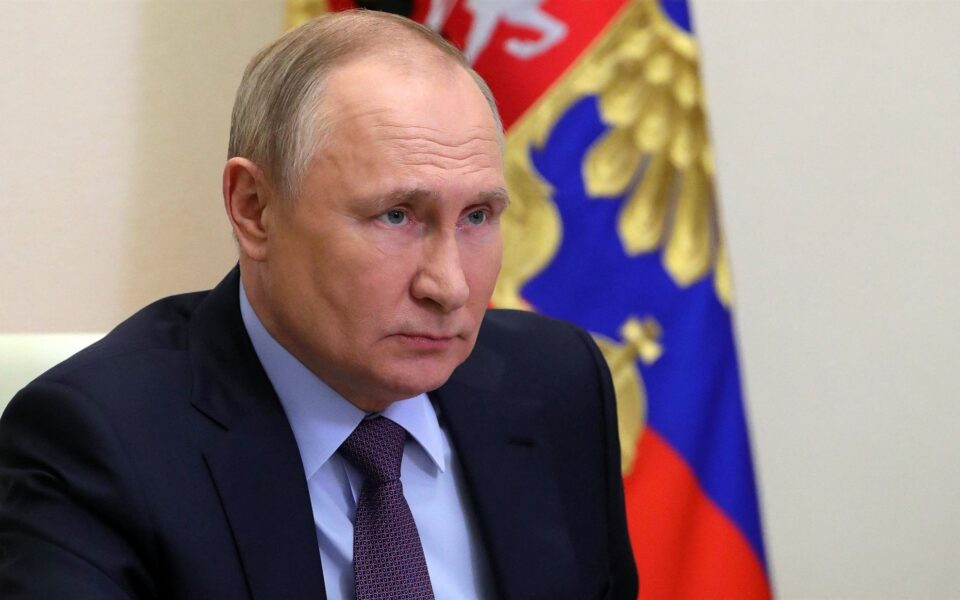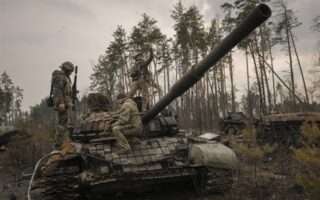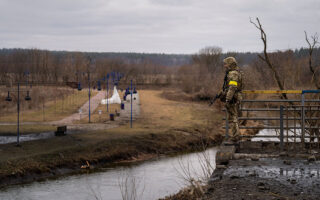What will happen to a defeated Russian empire?

It is too early to tell how and when Russia’s invasion of Ukraine will end, but it is not too early to ask questions about the future of Russia after Vladimir Putin’s fateful and criminal decision to invade Ukraine and annul its sovereignty. In the past weeks the world has witnessed several atrocities committed by the Russian army, following its failure to achieve its original military goals. The world has also witnessed Ukraine’s brave resistance; they are fighting for their freedom and a Ukrainian victory is no longer unthinkable.
Inside Russia, the invasion has brought about international isolation, massive sanctions, economic collapse and increased repression. Ordinary Russians are numbed by the war against a nation they share close ties with, a war that has inflicted the Russian war machine with more casualties in a month than the whole invasion of Afghanistan. In my view, a Russian defeat in Ukraine will surely lead to secessionist tendencies inside Russia, and possibly a breakup of the empire. Why?
The Russian tsarist empire has been constantly striving to expand since its birth in the mid-16th century. It expanded to the northwest, gaining access to the Baltic Sea, and to the southwest, annexing Ukraine, gaining territory from the ailing Ottoman Empire (Crimea, parts of the Caucasus). It expanded eastward, seizing territory from China in the northeast (Vladivostok) and competing with Japan over territories in Manchuria and the Far East. Russia has today the world’s largest territory with a population of only 140 million inhabitants.
Even though Russia’s territory and population are significantly smaller than the Soviet Union, today’s Russia is still an empire. Its territory comprises many non-Russian ethnic groups and nations (more than 120). Given its very centralized governance system, a military defeat is likely to significantly weaken the legitimacy of the Russian state and tempt many leaders of republics of the federation to secede, like Chechnya tried to do in 1991. The fact that there are a significant number of ethnic Russians in most republics (80% of Russian citizens are ethnic Russians) may not necessarily be an obstacle to such centrifugal tendencies. Kazakhstan for example became independent despite having a very large number of ethnic Russians.
Another factor that plays a role is the fact that among Russian soldiers sent to Ukraine, those from national minorities in colonized areas are unfairly overrepresented compared to ethnic Russians. During WWI, the French Army sent African soldiers from their colonies as cannon fodder to the front lines, as did the British with Indian soldiers. This played a non-negligible role in the development of the anti-colonial movements of later decades. Something similar may play out inside Russia after the war in Ukraine.
The time of empires and colonialism is over in a world where human capital and inclusive institutions are the fundamental drivers of economic prosperity
I do not want to speculate on how and under what conditions Putin will be replaced but, overall, a breakup of the Russian empire would be more of a good than a bad thing. A democratic resurgence in Russia after the Putin regime may prove to be only transitory and lead to new imperialist tendencies, threatening again Ukraine and its neighbors. Having a stable democratic function in such a large territory would be challenging. Research on democracy shows that it tends to fragment under the weight of secessionist tendencies unless it invests in decentralization and population mobility. A breakup of the Russian empire may lead to temporary chaos and disorder but would eventually create better conditions for peace, especially under democratic regimes on former Russian territories.
The time of empires and colonialism is over in a world where human capital and inclusive institutions are the fundamental drivers of economic prosperity. Benefits from conquering land and colonizing other territories are much smaller in the modern world and its costs are much higher. The Russian and other empires, like the Chinese, are doomed in the long run.
Gerard Roland is the E. Morris Cox Professor of Economics and professor of political science at the University of California, Berkeley.





